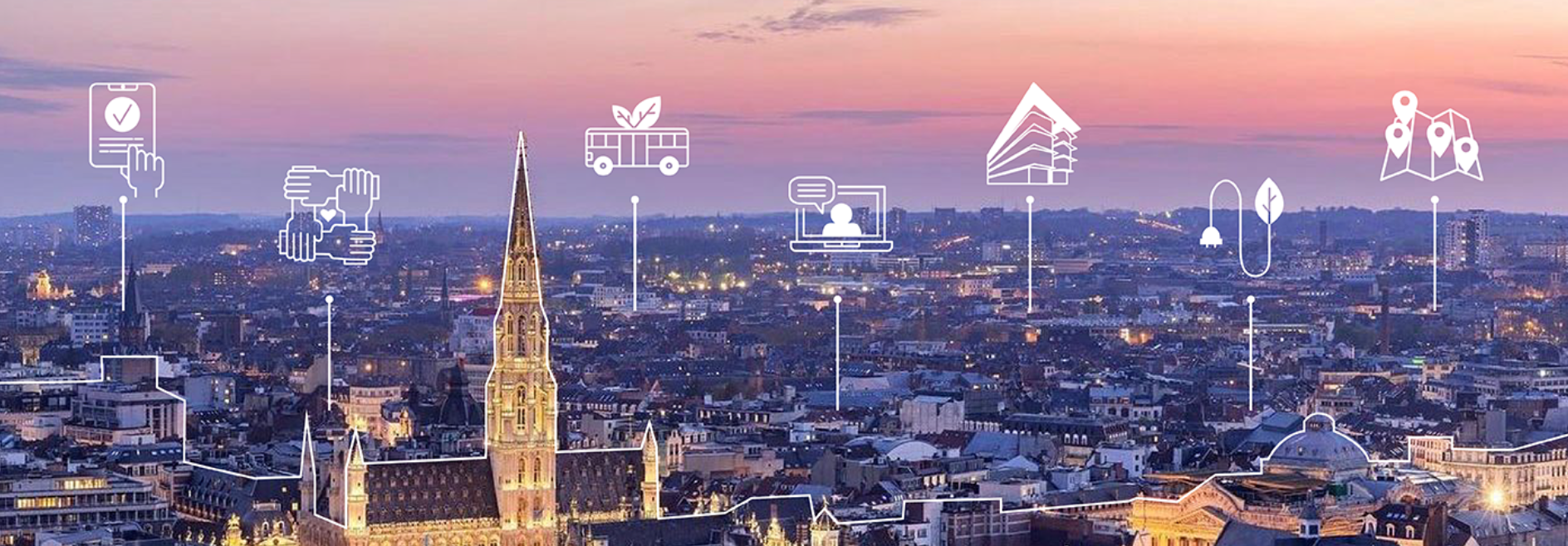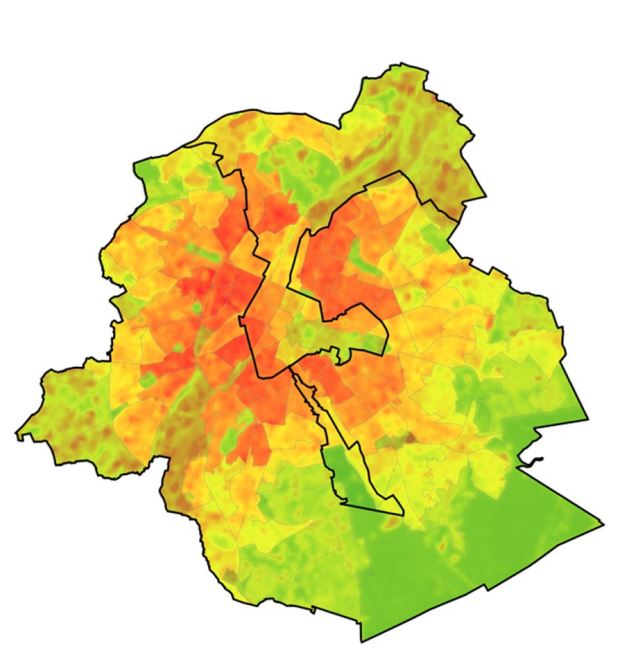About the City of Brussels
The City of Brussels, the capital of Belgium, has a population of nearly 190,000 inhabitants. The mission of its Smart City unit is to enhance citizens’ quality of life and public services while reducing the city’s environmental impact. To achieve this, the Smart City team initiates and coordinates various technological and inclusive projects based on its strategic plan and digital rights charter, encompassing all policy areas of the city. Currently, the focus is on developing the City’s first Local Digital Twin (LDT).
Developing
a Local Digital Twin
In the early stages of its LDT project, Brussels is addressing fundamental questions that cities typically encounter when launching an LDT initiative. The city experiments with different approaches to tackle these issues and shares lessons learned within the T4R project.
With guidance from external consultants, Brussels is also developing an ambitious '10-Minute City' platform. This platform maps basic services and facilities, calculates accessibility scores, and helps balance the supply and demand of these services. This model could serve as an inspiration for other cities' LDTs. Additionally, through its Digital Rights Charter, Brussels has gained significant expertise and will co-lead the 'ethics framework' in T4R, alongside Dublin. Leveraging its strategic location in Europe, Brussels will activate its extensive international networks to support this project.
Smart City Brussels
Pilot Action in T4R
Brussels aims to pilot an LDT focused on mitigating the 'heat island effect.' The objectives are to:
- Accurately map the heat island effect using various data sources (satellite, weather, sensors, etc.) and monitor its evolution.
- Model the impact of mitigation measures, analyse scenarios, and make predictions to support decision-making.
- Develop a future-proof tool that complies with the Digital Rights Charter and international standards.
The initial development of the LDT will cover a limited area within the city's positive energy district before expanding to the entire city.
To advance the LDT project, Brussels started with a 'short-sprint exercise' led by external consultants, resulting in a clickable mock-up of a digital twin. This initial phase provided valuable insights. A subsequent team of consultants has now taken over to validate the first LDT use case, define the tool's functionalities and architecture, and create a development roadmap.
Thermal vulnerability map of Brussels, based on a cross between population density and surface temperature.
Enhancing decision-making
Brussels’ LDT will improve decision-making in urban planning, vegetation management, and public space design. The city will also explore how this use case can synergize with the 10-Minute City platform to inform citizens about accessible 'freshness islands' within a 10-minute reach.
Pilot Action Manager City of Brussels: Catalin Turlica


